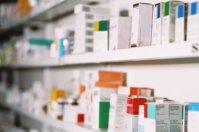Consider these stats:
- Approximately 6.8 million Americans abuse prescription drugs, says the Drug Enforcement Administration (DEA). That’s nearly double the number of Americans that use cocaine, heroin, hallucinogens and inhalants combined.
- Visits to the emergency department due to prescription drug abuse/misuse has increased 98.4% since 2004, according to AWARxE.
- In 2010, over 22,000 people died from prescription medication overdose, states the DEA. That number was higher than the number of motor vehicle accident fatalities that year.
- Between 1999 and 2009, the number of people entering substance abuse treatment programs for prescription drug addiction has increased 430%, states AWARxE.
- Prescription medications are the second highest drug abused among 12 to 17 year olds, marijuana being the first, states Judith L. Neville, author of Pharmacy Technician Exam Review Guide.
- According to AWARxE, three in five teens report that pain reliever medications are easy to obtain from their own parents’ medicine cabinet.
Safe disposal of prescription medications helps reduce these risks. Pharmacy technicians, and the rest of the pharmacy team, can help educate customers and patients on how to safely dispose their unwanted or unused prescriptions.
National Prescription Drug Take-Back Day
The DEA just hosted another National Prescription Drug Take-Back Day on April 26. On Saturday, more than 5,600 collection sites across the country set up so community members could dispose prescription medications, no questions asked.
The previous National Take-Back Day was in October 2013 where 324 tons of prescription drugs were turned in. The DEA has been hosting the event, in coordination with regional law enforcement agencies, since September 2010.
Pharmacy technicians and other staff can let their customers know of upcoming prescription drug take-back days in order to raise awareness and reduce negative consequences associated with keeping unnecessary medications in their home.
Local Take Back Programs
Individuals do not have to wait until a National Take-Back day before turning in unwanted/unused prescription drugs. Sometimes communities host local take-back events. Also, many areas have permanent medication drop-boxes. You can find out about where they are located by visiting: www.awarerx.org/get-local
In the past permanent drug drop-boxes have mostly been located in law enforcement agencies. With the passing of the Secure and Responsible Drug Disposal Act of 2010, more places, like pharmacies, are also starting to accept unused/unwanted prescriptions.
If a pharmacy does not participate in a disposal program, pharmacy technicians and their colleagues should be familiar with local drop-off locations in order to educate their customers and patients.
Safe Disposal Guidelines
Aside from the risk of drug abuse, addiction, theft and accidental intake, there are environmental concerns associated with improper disposal of medications. “When it comes time to get rid of old medication, be mindful,” wrote certified pharmacy technician and instructor, Jessie Kanatzar, for ThisIsKC.com. “Flushing pills down the drain can be harmful to the environment. Instead, remove old prescriptions through medication disposal programs, which are often offered through pharmacies and police stations.”
If customers and patients are not able to dispose their prescriptions at a take-back program or drop box, pharmacy technicians and other pharmacy staff should teach them about properly disposing medications at home:
- Follow disposal instructions for a particular drug if they are indicated on the label. (Proper disposal varies by medication).
- Only flush medications down the toilet if disposal instructions say it is okay to.
- If you do not have disposal instructions for a particular drug, take the medication out of the bottle, mix it with a substance like coffee grounds or kitty litter, and seal it in a plastic bag or container that you can add to the household trash.
- The Food and Drug Administration (FDA) offers a comprehensive set of guidelines for safe disposal including medicine-specific information.
As a pharmacy technician, it is important to consult with the pharmacist first to learn more about educating clients on safe medication disposal.


